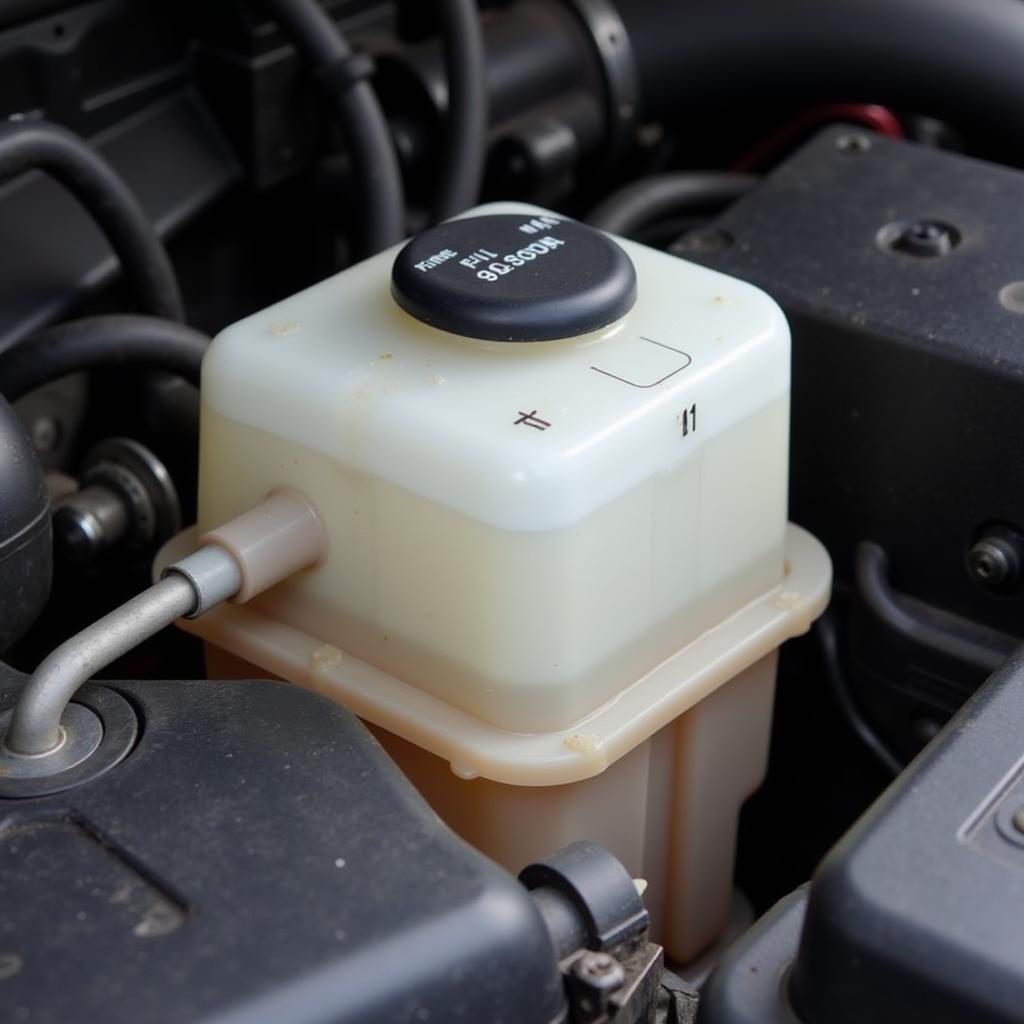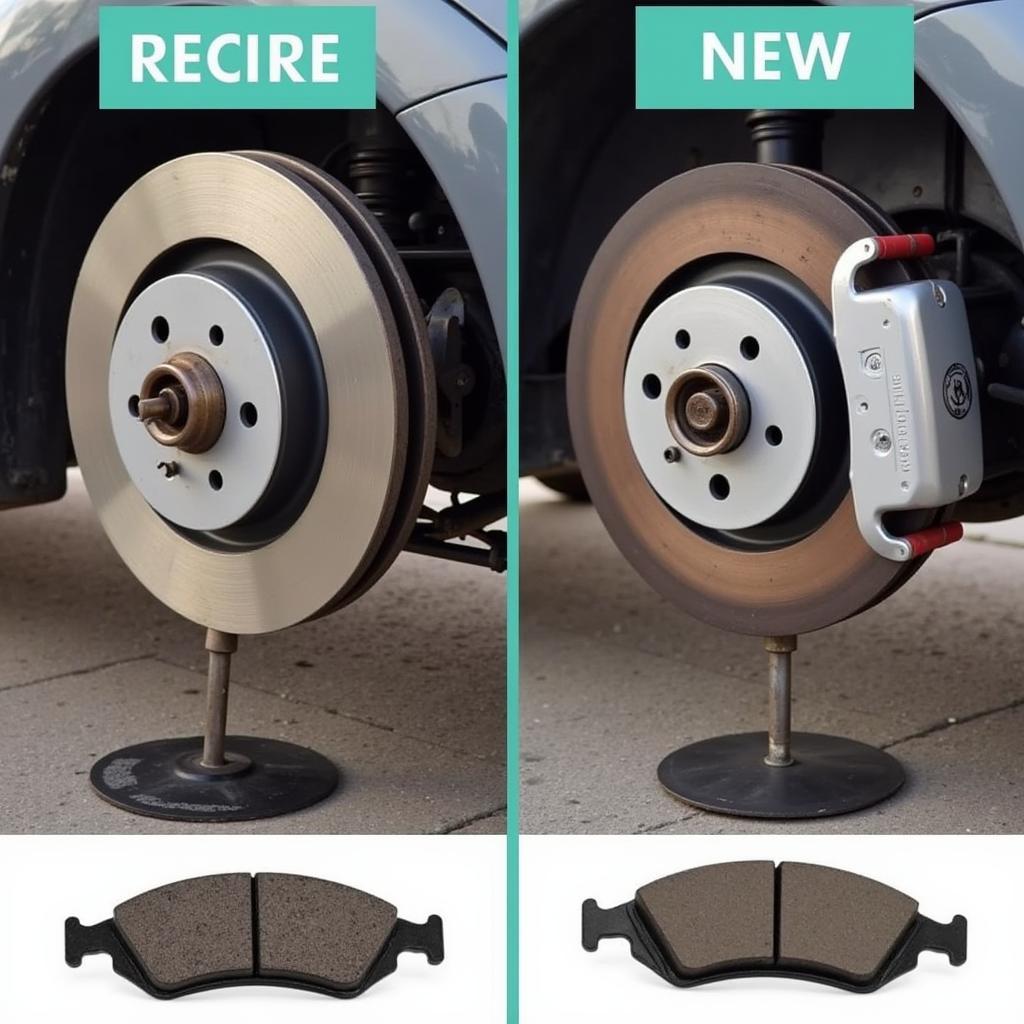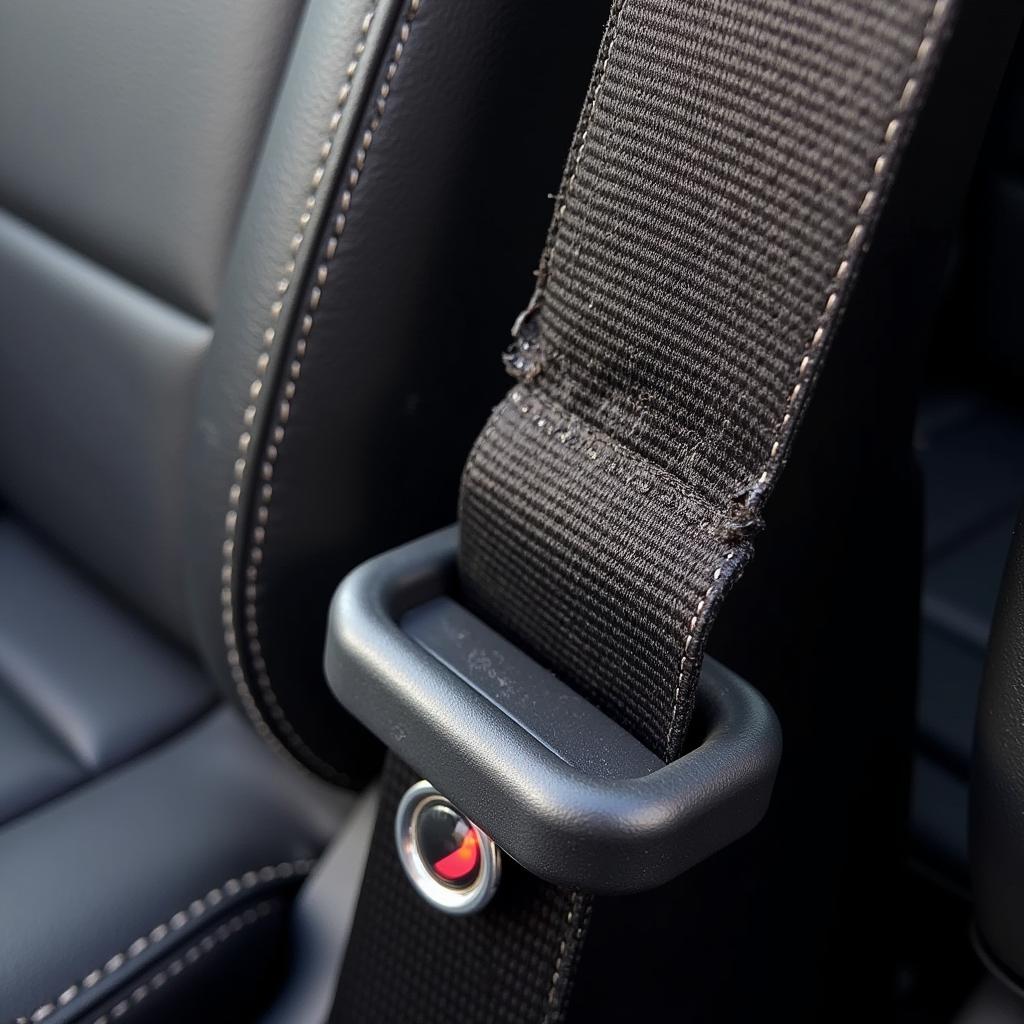If your 2000 VW Beetle’s brake warning light suddenly illuminates, it’s crucial not to ignore it. This light is your car’s way of telling you there’s a problem with the braking system that requires immediate attention. While it can be a minor issue, it could also indicate a serious safety hazard. This article will delve into the common causes behind a lit brake warning light on a 2000 VW Beetle and provide you with potential solutions to get you back on the road safely.
Understanding Your VW Beetle’s Brake Warning Light
The brake warning light, typically represented by an exclamation mark within a circle, serves as a critical safety indicator. When illuminated, it can signify several issues:
- Low brake fluid level: This is the most common culprit. Brake fluid is essential for transmitting force from the brake pedal to the wheels, allowing your car to stop.
- Worn brake pads: Brake pads naturally wear down over time. When they become too thin, the warning light will engage.
- Faulty brake calipers or wheel cylinders: These components are responsible for clamping the brake pads onto the rotors, generating the friction needed to stop the vehicle. Malfunctions here can trigger the warning light.
- Problems with the ABS system: While less common in a 2000 model, issues with the Anti-lock Braking System (ABS) can also trigger the light.
 Brake fluid reservoir in a 2000 VW Beetle
Brake fluid reservoir in a 2000 VW Beetle
Troubleshooting Your Brake Warning Light
1. Check Your Brake Fluid Level
- Park your VW Beetle on a level surface and engage the parking brake.
- Locate the brake fluid reservoir under the hood. It’s typically a translucent plastic container with a black cap.
- Check the fluid level. It should be between the “MIN” and “MAX” lines marked on the reservoir.
Low Brake Fluid?
- If the level is low, carefully remove the reservoir cap and add the appropriate DOT 3 or DOT 4 brake fluid, as recommended in your owner’s manual. Avoid overfilling.
- A sudden drop in brake fluid often indicates a leak. Carefully inspect the brake lines, hoses, and calipers for any signs of leakage.
Fluid Level Okay?
- If the brake fluid level is adequate, move on to the next step.
 Worn brake pads on a 2000 VW Beetle
Worn brake pads on a 2000 VW Beetle
2. Inspect Your Brake Pads
- With the car safely lifted and secured on jack stands, remove a wheel to gain access to the brake caliper and pads.
- Caution: If you are unfamiliar with this procedure, it’s recommended to have a qualified mechanic inspect your brake pads.
- Examine the brake pad thickness. If they are worn down to about 1/4 inch or less, it’s time for a replacement.
3. Consider Other Potential Issues
If your brake fluid level is normal and your brake pads seem fine, the issue might lie elsewhere:
- Faulty brake light switch: A malfunctioning brake light switch can sometimes illuminate the brake warning light.
- Electrical issues: A short circuit or wiring problem within the brake system can also be the cause.
When to Seek Professional Help
While some brake issues can be addressed with basic DIY skills, it’s essential to recognize when professional assistance is necessary:
- You suspect a brake fluid leak.
- You are uncomfortable inspecting or replacing brake components.
- The warning light persists even after addressing the common issues.
“Remember,” says John Miller, a certified automotive technician with over 20 years of experience, “brakes are your car’s most vital safety system. Never compromise on their maintenance and repair.”
Conclusion
A glowing brake warning light on your 2000 VW Beetle signals a potential issue with your braking system. Addressing the problem promptly is crucial to ensure your safety and the longevity of your vehicle. By following the steps outlined in this article, you can diagnose the root cause and potentially resolve simple issues. However, if you’re uncertain about any aspect of brake repair, it’s always best to consult a qualified mechanic.
FAQs
1. Can I drive my 2000 VW Beetle with the brake warning light on?
It’s strongly advised against driving with the brake warning light on. It indicates a potential problem with your braking system, which could lead to a dangerous situation.
2. How much does it cost to fix a brake warning light on a 2000 VW Beetle?
The cost of repair can vary significantly depending on the underlying cause. Simple fixes like adding brake fluid might cost under $50, while more complex repairs like replacing calipers or rotors could run several hundred dollars.
3. How often should I replace my brake fluid?
It’s generally recommended to replace your brake fluid every 2 years or 30,000 miles. However, consult your owner’s manual for specific recommendations for your 2000 VW Beetle.
4. How can I tell if my brake pads need to be replaced?
Visually inspecting your brake pads for wear is the most reliable method. If they are less than 1/4 inch thick, it’s time for a replacement.
5. Does the ABS light come on with the brake warning light?
Not always. While both lights relate to the braking system, they often indicate separate issues. An illuminated ABS light specifically points to a problem within the Anti-lock Braking System.

